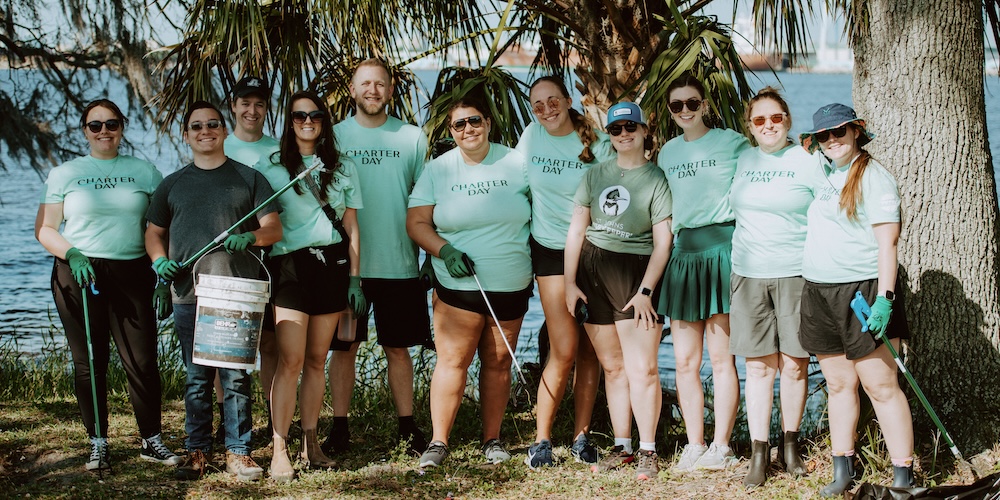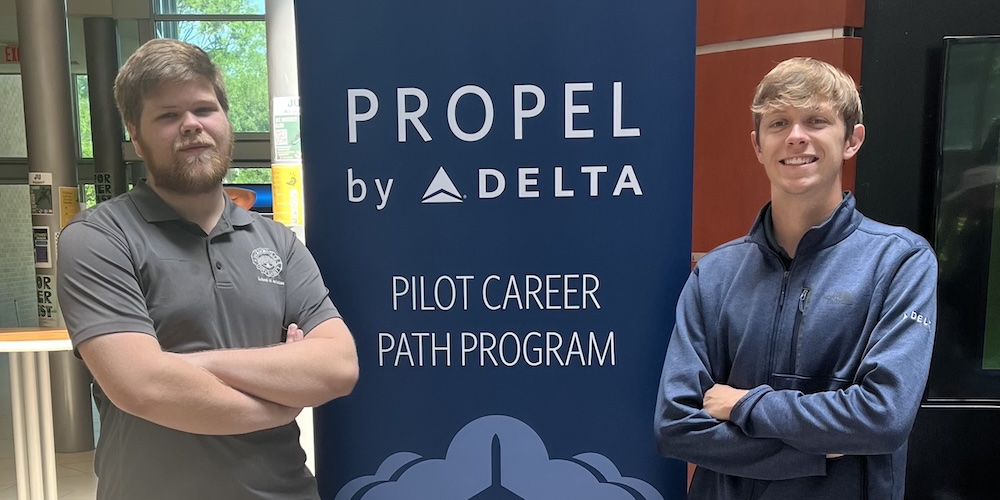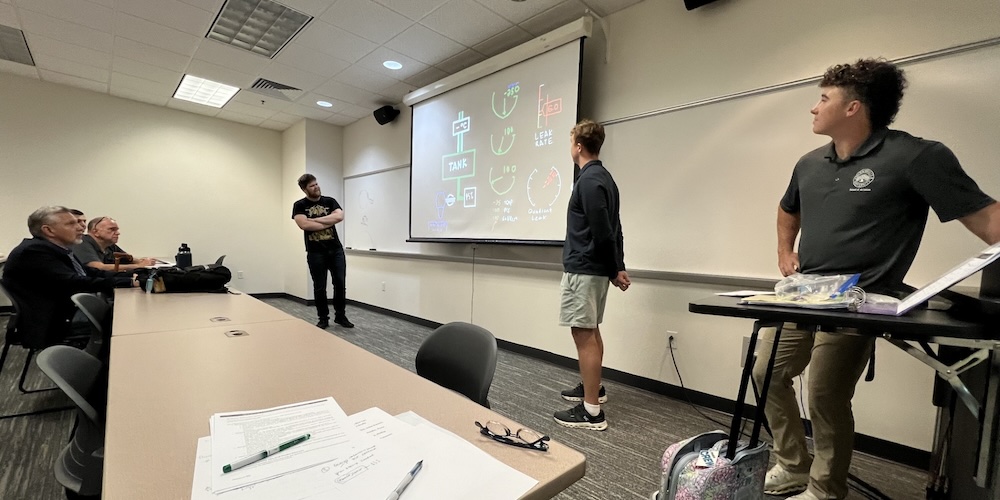Restricting access to literature might be the oldest trick in the playbook of monarchs, politicos, priests, and similar powers. The intention is often thought to be a valiant one—to protect young minds, to preserve traditions, to promote moral choices. It’s a delicate matter though, dictating what someone can or can’t read. In the State of Florida, the topic has never been more debated.
Inspired by the School of Humanities’ Philosophy Slams, the Public Policy Alumni Network hosted its first Policy Slam, bringing together a panel of experts in philosophy, law, and public policy to discuss banned literature and its current policy implications for the Florida education system.
Chair of the Network, Elizabeth Krajewski opened the forum with a welcome and introduction of the topic and expert panel. “Florida is currently leading the conversation in banned literature, testing legal boundaries so that other states can follow.”
The discussion began with philosopher and Chair of the Division of Humanities, Dr. Scott Kimbrough, who named the most popular instances of First Amendment controversy in Florida: the Don’t Say Gay law (HB-1557) and the Stop W.O.K.E. Act (HB-1467).
The Don't Say Gay law which took effect in 2022 states that its purpose is to “prohibit classroom discussion about sexual orientation or gender identity in certain grade levels or in a specified manner.”
In kindergarten through grade 3, educators are prohibited from instructing on sexual orientation or gender identity, terms that remain legally undefined in HB-1557. Beyond the third grade, instruction on sexual orientation or gender identity is permitted as long as it adheres to state standards and is considered age or developmentally appropriate—also legally undefined. The law's lack of clarity raises questions: can educators use books with LGBTQ+ characters as long as their sexual orientation or gender identity is not the main focus? Should all discussion of families and diverse family structures be avoided in grades K-3?
Since the slam, the State Board of Education broadened the Don’t Say Gay bill coverage to all students in all grades.
Contemporaneously, the 2022 Stop W.O.K.E. Act prohibits instruction on race relations or diversity that implies a person's status is either privileged or oppressed based on their race, color, national origin, or sex. Thus, HB-1467 requires that any library or instructional books be reviewed by a district employee with a valid educational media specialist certificate to monitor for books that contain graphic content or banned lessons on racism. Currently, more than one million books are under review to adhere to Florida’s laws restricting lessons about race and racism, gender and sexual identity.
Supporters claim these laws protect freedom and oppose indoctrination. However, Kimbrough argued that limiting access to diverse viewpoints is true indoctrination. He highlights the contradiction between the laws' rhetoric and the principles of education. Considering parental rights is important, but public education should reflect broader community interests, he said.
“Indoctrination is when you limit viewpoints to a single correct viewpoint. Having books in a library is not indoctrination. Preventing students from accessing information because it does not fit a particular political narrative is indoctrination,” said Kimbrough.
The consequences for an educator in violation of these laws are high, threatened with the removal of licensure and incarceration.
Associate Dean of the College of Law and communication professor Dr. Courtney Barclay highlighted that the issue of book banning extends beyond Florida as other states take similar legislative actions.
She clarified the distinction between books being challenged and those that are actually banned from public depositories, like public libraries and schools. These bans generally happen at the local and state level, said Barclay, emphasizing the importance of community engagement in local politics and school board elections.
Drawing from statistics provided by the American Library Association, Barclay explained that the major reasons for book bans were sexual content, offensive language, and perceived age inappropriateness. Notably, in 2021, issues relating to Black or LGBTQIA+ individuals were prominent in book challenges. Most of the challenges came from organized advocacy groups, not parents, she indicated. Now it’s one complaint from an advocacy group challenging hundreds of books at a time, rather than one parent complaining about one book, which makes it harder for the school board to manage.
Barclay then brought the conversation to the nuanced landscape of First Amendment rights in public education, acknowledging the balancing act between student expression and information access within the limitations of a public school setting. While state governments hold authority over educational decisions, including curriculum and book selection, such decisions must be educationally justified rather than driven by personal or political motivations.
In close, she underscored the historical significance of book bans and burnings during the Holocaust and the pre and post Civil War era of lynchingsm, stressing the essential role of preserving access to knowledge and safeguarding the exchange of ideas. Holding to the principles of the First Amendment, she encouraged discourse and dialogue as the antidote to ideas one may find disagreeable.
“The answer to objectionable speech is not censorship, but rather more speech or the choice to disengage.”
Professor of Public Policy, Dr. Jordan Carr Peterson, then explained the origin of the legislation in the context of the COVID-19 pandemic. With students learning from home, parents gained closer oversight of their children's education, resulting in concerns about curricula and materials conflicting with their personal beliefs. As divisive social issues compounded these worries, HB-1467 and HB-1557 emerged, legislation that would have seemed unlikely just five years ago, he said.
Peterson emphasized the need for both sides of the aisle to answer the question, "How did we get here?" He pointed out that values of individual freedom and the right to challenge ideas have historically been integral to democracy and have been reflected in the platforms of both political parties. However, he expressed surprise that recent policies limiting book access have been adopted by Republicans, a party traditionally associated with principles of liberty and individual freedom. Yet, the effectiveness of these policies for the Republican party was a separate question. Clearly, there is an electorate that responds positively to such measures, at least in theory, he said.
In urging reflection, Peterson emphasized that acknowledging the influence of Critical Race Theory-derived lessons and pedagogy within the American left would be crucial. Recognizing this, rather than disputing its existence, might elucidate factors that contributed to the situation Florida is in.
Peterson closed with, “It’s important in the name of intellectual honesty to recognize illiberal proposals whether they originate from the left or the right, even though the practical motives for illiberal policies among adherents to either ideology may differ.”
The panelists opened the forum for questions and comments, and the discussion among students and alumni began.


